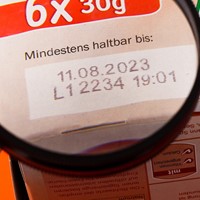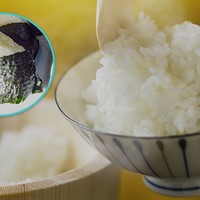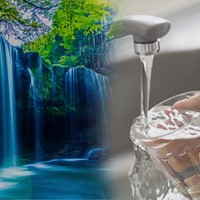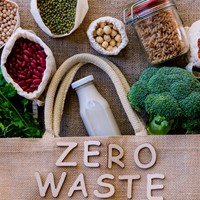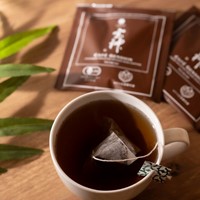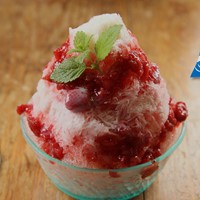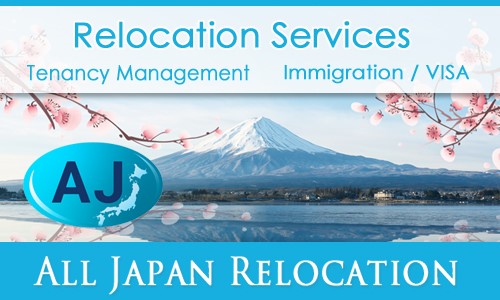4 Caffeine-Free Alternatives to Coffee in Japan

This page contains affiliate links.
This article is contributed by 供TOMO.
Coffee is everywhere in Japan: you can find it in convenience stores, supermarkets sometimes have their own coffee machine you can use for ¥100, and some vending machines even offer coffee cans for cheaper. But sometimes, you have coffee cravings and for some reason you cannot drink your cup of coffee: so what can you do? You have to switch for a coffee alternative!
There are also many articles covering food and drinks in Japan including Japanese brown rice coffee, wasanbon (sugar), cinnamon, oden, noodles, luxury fruits, wagashi, and more.
Who might need a coffee alternative in Japan?
Pregnant women must avoid caffeine. If you are under some medication, if you are suffering from caffeine sensitivity, sleeping troubles, or stress issues, you might consider coffee alternatives. Tea is the most popular one.
Japan is known for its wide variety of tea: green tea, genmai-cha (green tea with roasted popped brown rice), matcha… They are lower in caffeine compared with coffee, but they still contain a certain amount. If you want to cut your caffeine intake, you need to look for other options.
This is why we gathered for you in this article 4 caffeine-free, tasty, and low calories alternatives to coffee you can easily find in Japan.
1. Decaffeinated Coffee

Also called “non-caffeine”, decaffeinated coffee can be found nearly everywhere in Japan. In supermarkets, you will find decaffeinated coffee powder. Be careful about the amount of caffeine though: Decaffeinated coffee is produced with a special manufacturing method that reduces the amount of caffeine, but it does not mean it is 100% caffeine-free. Generally speaking, decaffeinated drinks may still contain about 0.1% caffeine.
If you want to avoid caffeine at all costs, the following drinks might be better for you.
・Common way to drink: Hot
・How does it taste: Similar to coffee
・Common places to find it: Supermarkets, restaurants, sometimes coffee shops and even convenience stores
・Can children and pregnant women drink it?: Better to avoid
2. Barley Tea

Barley tea is a popular drink in Japan, especially in summer. You will find it in supermarkets or vending machines under the name “mugicha”. This drink is caffeine-free, and low in calories. Children and adults can drink it.
・Common way to drink: Iced
・How does it taste: Toasty taste and nutty flavor
・Common places where to find it: Supermarkets, convenience stores
・Can children and pregnant women drink it?: Yes
3. Genshin Coffee

Genshin coffee is a roasted brown rice coffee made from organic rice. This coffee alternative is caffeine-free, sugar-free and it has a deep aroma. Genshin coffee is made by roasting then grounding brown rice with hot water, so that it can be drained.
Genshin coffee is one of the healthiest coffee alternatives. Brown rice is rich in vitamins and minerals. Regular coffee is described as "cooling the body" in macrobiotics and oriental medicine, while brown rice is classified as a body-warming food. This drink is therefore safe for children and pregnant women.
Genshin coffee is easy to drink, and it has no acidity or bitterness. Despite being called “coffee”, you can find Genshin coffee in tetra bags or ground.
You can buy Genshin coffee:
・on 供TOMO Official website
・on Amazon Japan
You can also order Genshin brown rice coffee in the United States on Amazon.com
・Common way to drink: Hot, iced, latte, after a sushi meal or Japanese sweets
・How does it taste: Toasty taste, rich and roasted brown rice flavor
・Common places to find it: Online, coffee shops, hotels
・Can children and pregnant women drink it?: Yes
4. Dandelion coffee

Dandelion coffee, also called “dandelion tea” or tanpopo kōhī in Japanese, was spread across Europe when coffee beans were expensive. This drink is often used as a coffee substitute because of its appearance close to coffee. Dandelion coffee is made from dried and roasted edible dandelion roots. It has a light orange color and a deep flavor. It might improve liver health, and some people use it as a diuretic. This coffee alternative is also caffeine-free and low in calories.
・Common way to drink: Hot or iced
・How does it taste: Toasty taste and nutty flavor
・Common places to find it: Supermarkets, sometimes coffee shops
・Can children and pregnant women drink it?: Yes
Conclusion
Yes, you can find tasty alternatives to coffee in Japan. The most common ones are decaffeinated coffee, barley tea, Genshin coffee, and dandelion coffee. These alternatives are sugar-free and low in calories. If you are not sure about a drink, don’t hesitate to ask the staff for a caffeine-free or decaffeinated option on the menu (usually, the words “caffeine-free” and “decaf” are two English words well understood in Japan). If you don’t mind consuming a small amount of caffeine, you can still drink Japanese tea like genmai-cha, matcha, or wakoucha (Japanese black tea).
To learn more about Genshin coffee, feel free to visit TOMO’s website: tomo.life/en

